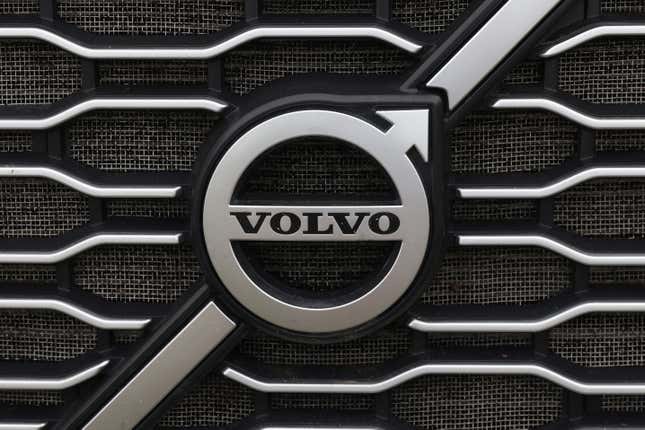
In This Story
Volvo Cars has reportedly started shifting production of its China-made electric vehicles Europe just days before the European Union is expected to announce tariffs on government-subsidies cars.
Volvo is also considering putting a freeze on exports of its China-made EVs for the European markets if the government bloc moves to introduce tariffs, The Sunday Times reports. The Swedish automaker is majority-owned by Zhejiang Geely Holding Group. The Chinese company also owns Sweden-based EV startup Polestar and Chinese premium EV brand Zeekr.
Volvo makes the EX30 and EX90s electric sports utility vehicles in China. Production of both will be shifted to Belgium, which is expected to prevent the company from freezing exports to European markets, The Times reports.
The move comes as the European Commission is expected to announce an initial decision this week regarding its eight month-long investigation into Beijing’s subsidies for EVs made by domestic manufacturers. The regulator, which oversees trade policy for the 27-member government body, can impose provision anti-subsidy tariffs nine months after the probe begins.
“Global markets are now flooded with cheaper Chinese electric cars, and their price is kept artificially low by huge state subsidies. This is distorting our market,” European Commission President Ursula von der Leyen told E.U. lawmakers in France in October as she announced the inquiry.
But at least one European automaker has called for the Commission to refrain from imposing the tariffs. Stellantis CEO Carlos Tavares has argued that they could fuel inflation and hurt sales across Europe, calling tariffs a “trap.”
The leader of the company behind brands like Jeep and Ram has also called the auto market “darwinian,” adding that protective measures like tariff will isolate automakers “in a bubble.” Companies inside that bubble will be outmatched by the companies that have to fight tooth and nail for position in the global market, he said.
If the E.U. does impose new tariffs on China’s EVs, it would join the U.S., which plans to quadruple duties on EV imports from the nation later this summer. The Biden administration is also raising tariffs on on semiconductors, lithium-ion batteries, solar cells, and some steel and aluminum products to tamp down on competition.
China’s Commerce Ministry has said the tariffs will “seriously impact the atmosphere of bilateral cooperation” and threatened to “take resolute measures to defend its rights and interests. A affiliated business group told the state-owned Global Times that tariffs of up to 25% could be raised on imported vehicles.